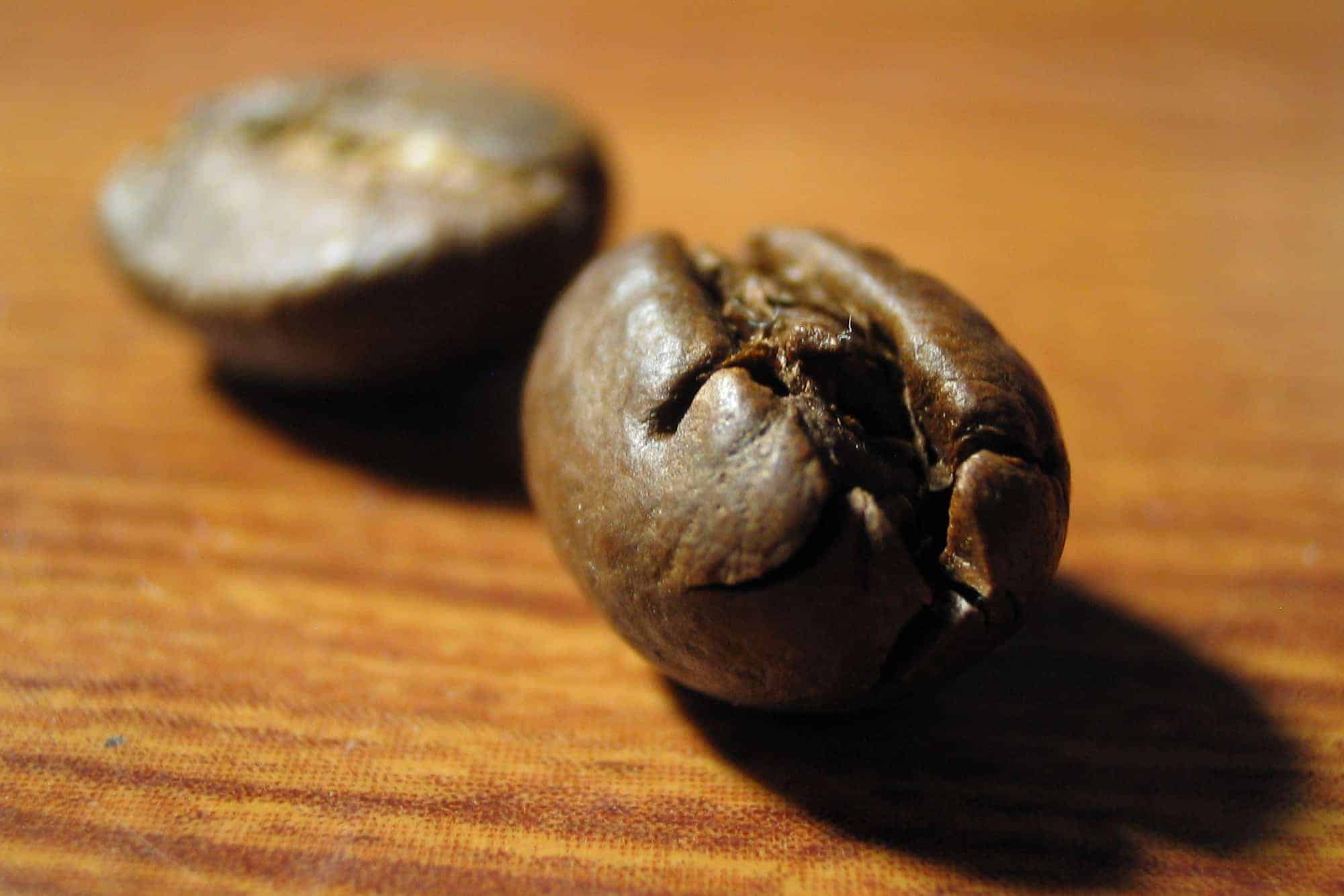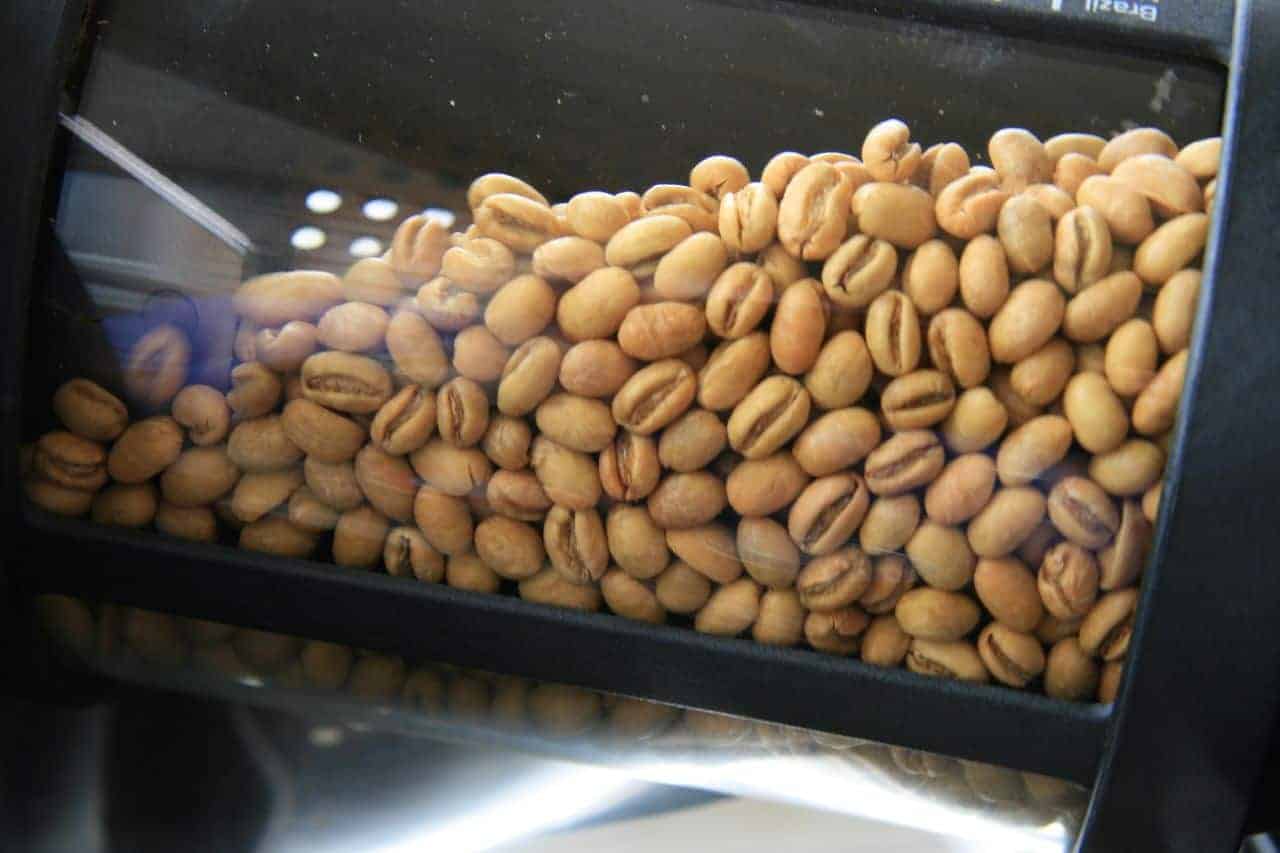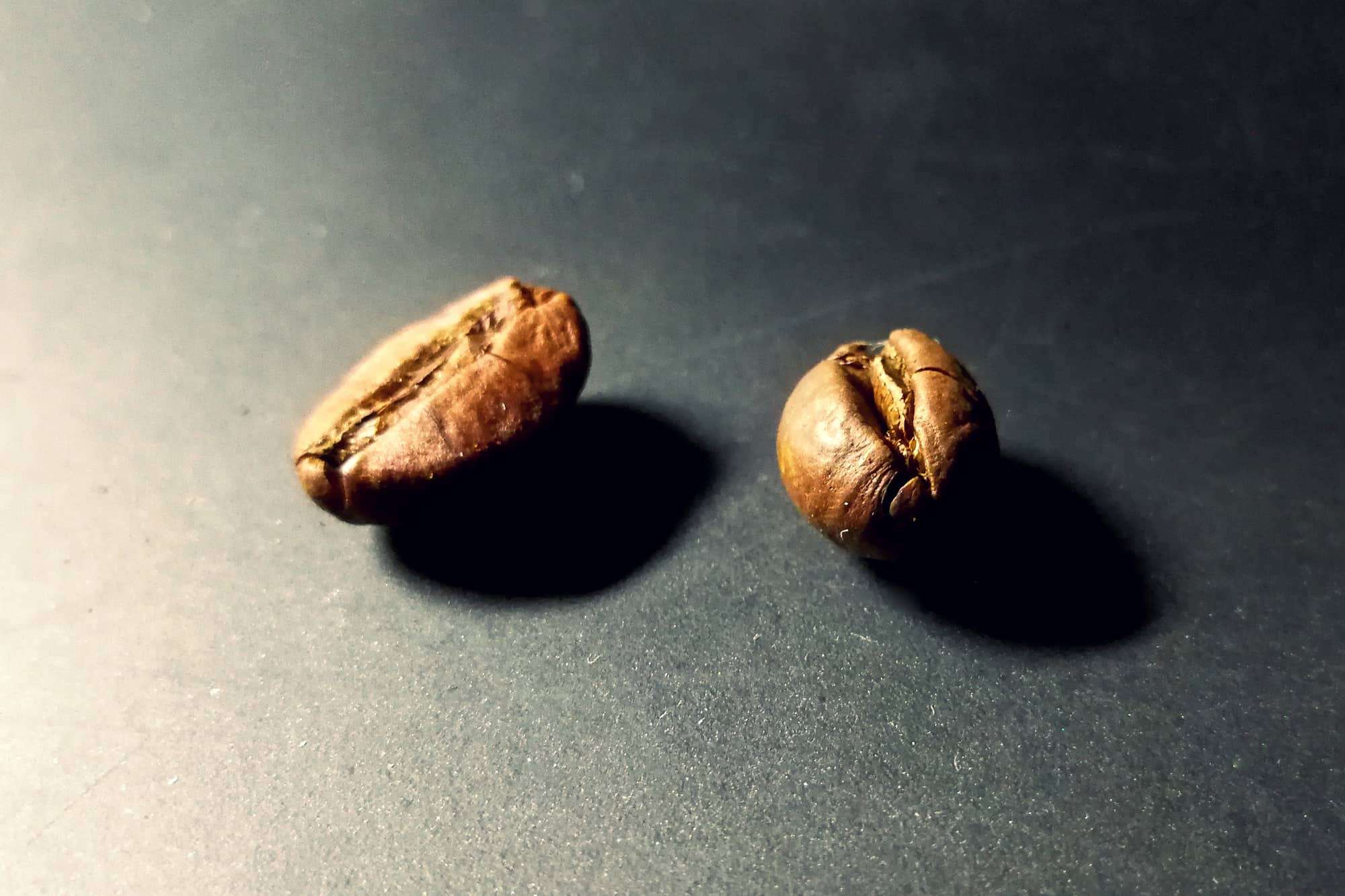If you spend any time searching across the internet for different varieties of coffee, you may have stumbled upon the "peaberry" phenomenon that has sprung up in recent years.
You may have asked yourself "Why is there such a premium for peaberry coffee?", "What is so great about a smaller bean?", "I thought coffee was a bean, not a berry?", or any other variation of these questions.
You are not the only one who has asked this question.
What is a Peaberry?

A peaberry coffee bean. Regular bean in the background. Photo by Mitchell Wang | CC BY-NC
Coffee, in case you didn't know, is a fruit. Like all fruits, there is a fleshy part that protects 2 seeds normally. These seeds are compressed together within the husk thus giving them a flat side.
Peaberry coffee results from a fundamental genetic mutation where there are not two seeds within the husk, but just one. Therefore, the resulting coffee "bean" has no flat sides and resembles a pea...or...erm...a berry. A peaberry!
No one has been able to figure out the cause of this genetic mutation, but we do know that usually, less than 15% of all coffee cherries will be peaberry producers.
Where Does Peaberry Coffee Come From?
There is a potential to get a peaberry from every single coffee cherry. Typically, the peaberries are discovered when the coffee is processed and sorted.
Countries more significant and established coffee production industries usually produce peaberry coffee. These would include Tanzania, Kenya, and Brazil.
These locations, we believe, do not actually have a higher chance of producing peaberries, they simply have the means to separate the natural coffee from the mutated.
You may ask, "How is coffee sorted?" In the case of discovering peaberries, that process is usually done by hand which may point to a reason for the premium over a normal bag of coffee, besides the rarity.
Roasting Peaberry Coffee

Roasting peaberry coffee beans. Photo by Mark | CC BY-NC-ND
Once the coffee is sorted and processed, peaberry coffee is treated in the same way as a normal bean. Like all beans, a roaster will roast a test batch or two to determine the optimal roasting procedure to achieve the best results for the bean.
If some producers are to be believed, peaberry coffee will offer a much stronger and more pronounced sweetness in the cup. A good roaster will know the attributes of his bean and adjust accordingly.
Why is Peaberry Coffee More Expensive?
As I have previously mentioned, there may be a few reasons why there is a slight premium on peaberry coffee over the "normal" variety.
Is Peaberry Coffee "Better" that the Unmutated Variety?

Left: Regular bean. Right: Peaberry bean. Photo by Mitchell Wang | CC BY-NC
Here is where the rubber really hits the road regarding the difference between peaberry coffee and the unmutated, "normal" coffee.
The big question is if you are going to pay a higher price, are you going to get a higher quality product? A better taste? Some rare and foreign experience?
Arguments Supporting the Idea that Peaberry is Better
Some people are strongly passionate about peaberry coffee. You will hear them make all kinds of statements about the bean in this form.
For example, they will claim the bean is more flavorful than the unmutated one. They claim that because the bean was alone within the coffee cherry, that results in a stronger bean and a better flavor from higher nutrient content.
Additionally, they claim the bean is sweeter. Again, I believe this comes from the argument that the lone bean in the cherry results in a higher sugar content.
According to some experts, the peaberry might be sweeter than normal coffee. But we can not determine where, when or how this exactly happens. Nor can we say that every time we have a peaberry, it will be sweet. So, while these folks might be right, they also might be wrong.
Arguments Supporting the Idea that Peaberry is Just Coffee
Ken David has stated that peaberry might lead to a somewhat different cup sometimes. So, are we really ever experiencing some aspect of peaberry coffee which is superior or vastly different from normal coffee, or are we looking too hard?
The difficulty of proving whether or not peaberry coffee is hugely different is the core argument for simply ignoring peaberry and drinking coffee.
Furthermore, peaberry coffee is often marketed relentlessly as being superior or exotic compared to normal coffee. It would seem that based on most experiences folks have had with coffee, this marketing is more marketing and less truth.
The Taste: My Personal Experience
Personally, I tend to believe that peaberry coffee is not really that different. Certainly, I would not buy an entire bag of peaberry coffee for $45.
Why? You will get peaberries in your normal bag of beans.
But, what about the taste? I tend to agree that sometimes peaberry coffee is sweeter. But I have never experienced a peaberry with a major difference in the flavor profile compared to unmutated coffee from the same origin.
This, of course, could be due to the presence of peaberries in normal coffee bags.
Peaberry coffee, to me, is something of an enigma. But, I do not believe that there is any taste reason why you should switch completely to drinking peaberry, nor do I ever believe that paying twice what you pay for the unmutated coffee of the same origin is warranted.

